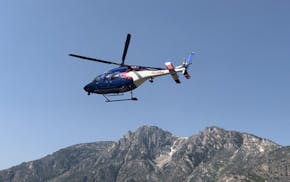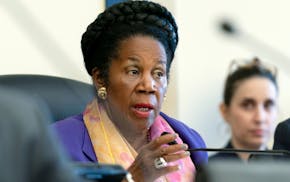A new study from Stanford University estimates that 18 of Trump's recent large-scale campaign rallies ultimately resulted in 30,000 confirmed cases of the coronavirus and probably led to more than 700 deaths among attendees and others infected by them.
The study, released Friday by Stanford economics professor B. Douglas Bernheim and three doctoral students, examined rallies staged by Trump between June 20 and Sept. 30 and looked at the trajectory of cases in the counties in which they were held.
"Our analysis strongly supports the warnings and recommendations of public health officials concerning the risk of COVID-19 transmission at large group gatherings, particularly when the degree of compliance with guidelines concerning the use of masks and social distancing is low," the authors said. "The communities in which Trump rallies took place paid a high price in terms of disease and death."
Asked for comment on the study's findings, the Trump campaign did not address the numbers but pushed back on the notion that the standards for social distancing at its rallies are low.
"Americans have the right to gather under the First Amendment to hear from the President of the United States, and we take strong precautions for our campaign events, requiring every attendee to have their temperature checked, providing masks they're instructed to wear, and ensuring access to plenty of hand sanitizer," Courtney Parella, the campaign's deputy national press secretary, said in a statement. "We also have signs at our events instructing attendees to wear their masks."
The Biden campaign seized on the study, saying it is further evidence that Trump is holding "superspreader" events.
"Donald Trump doesn't even care about the very lives of his strongest supporters," spokesman Andrew Bates said.
During the closing weeks of the campaign, Trump has touted his ability to draw large crowds and mocked Biden for holding "drive-in" events with far fewer attendees.

JD Vance, an unlikely friendship and why it ended

Lewis Lapham, editor who revived Harper's magazine, dies at 89

Body of missing Minnesota hiker recovered in Beartooth Mountains of Montana
Mike Lindell and the other voting machine conspiracy theorists are still at it

